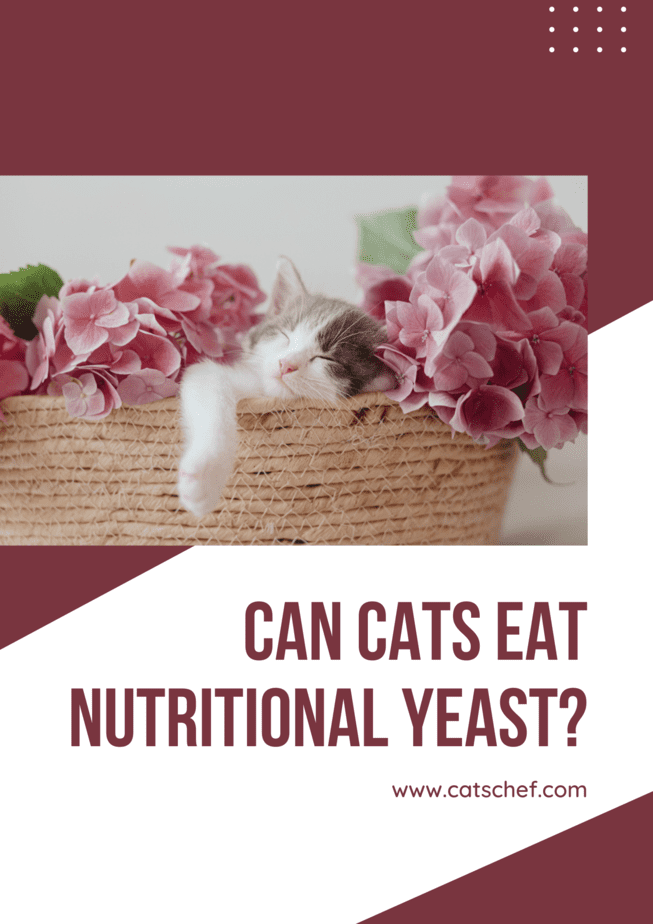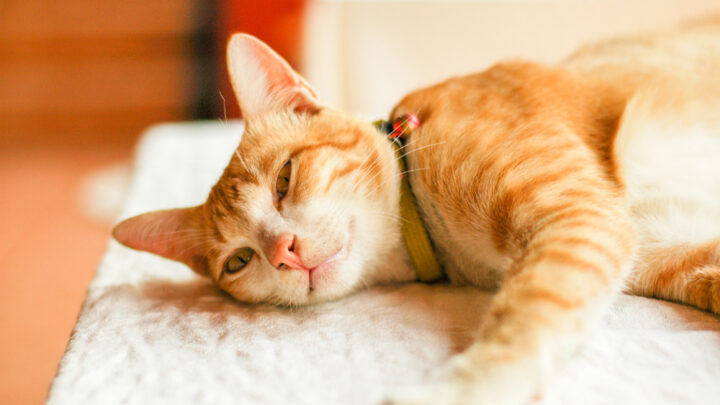Hearing the name of this food, you must think that it’s a perfect treat for your pet. But can cats eat nutritional yeast?
Is there more to the name? As cat lovers, we must wonder about various things, including our felines’ diets.
A cat’s diet usually consists of meat because that’s a carnivore’s source of nutrition. However, we tend to add some of this and some of that to her menu as well.
Before introducing new foods to your furchild, it’s best to think about whether it’s safe for her. Will she have any side effects from consuming this food?
These rumbunctious creatures don’t seem that sensitive. Yet, you’d be surprised how many problems could erupt out of an imbalanced diet.
Still, this doesn’t stop your furball from trying out new foods. And sometimes risk lurks around the corner.
Other times, if your pet’s lucky enough, she’ll benefit from the new foods she decided to introduce on her own. Hey, they have their instincts!
Well, I know how worrisome all these thoughts might be. Don’t stress too much because we’re about to delve into whether cats can and should eat nutritional yeast.
Can cats eat nutritional yeast safely?
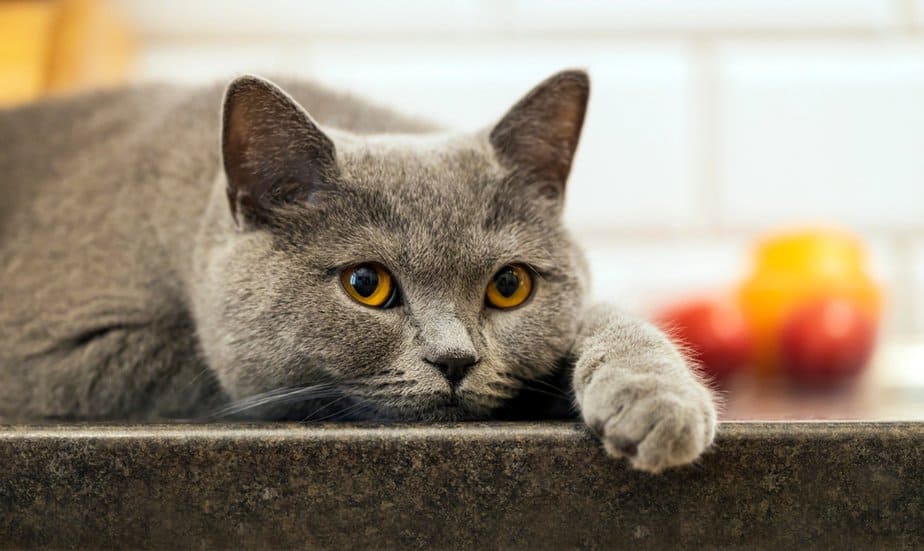
Is nutritional yeast safe for felines? Now, I know what you’re thinking. How can cats eat an ingredient used in making g dough!?
They can’t. Fortunately, we’re talking about another yeast. Nutritional yeast (or “nooch”, as some call it) is completely edible.
It can be found almost anywhere – from health food stores to supermarkets. People often tend to use the term nutritional yeast interchangeably with brewer’s yeast.
However, this is incorrect as these are two different types of yeast. Brewer’s yeast is produced as a result of beer brewing.
If you tried to make bread with nutritional yeast, you wouldn’t be thrilled because the taste would be rather bitter. Also, if you mix up these two, it doesn’t necessarily imply a negative outcome.
Brewer’s yeast holds certain health benefits for cats such as chromium. This trace mineral helps regulate blood sugar levels.
Also, nooch differs from active yeast. For instance, the active type of yeast is used in leavening dough, but you can’t make pizza dough out of nooch.
Still, nutritional yeast fits well in almost any type of diet. It’s gluten-free, vegan-friendly, and low in fats and sugar. It also comes in powder form or as thin flakes.
This makes your life so much easier when you’re trying to trick your cat into eating it. But why would you want to persuade your pet into eating nutritional yeast?
Believe it or not, its palatability can help cat owners with picky eaters. This is all thanks to the glutamic acids that nutritional yeast contains, which makes it yummy for felines!
What are the health advantages?
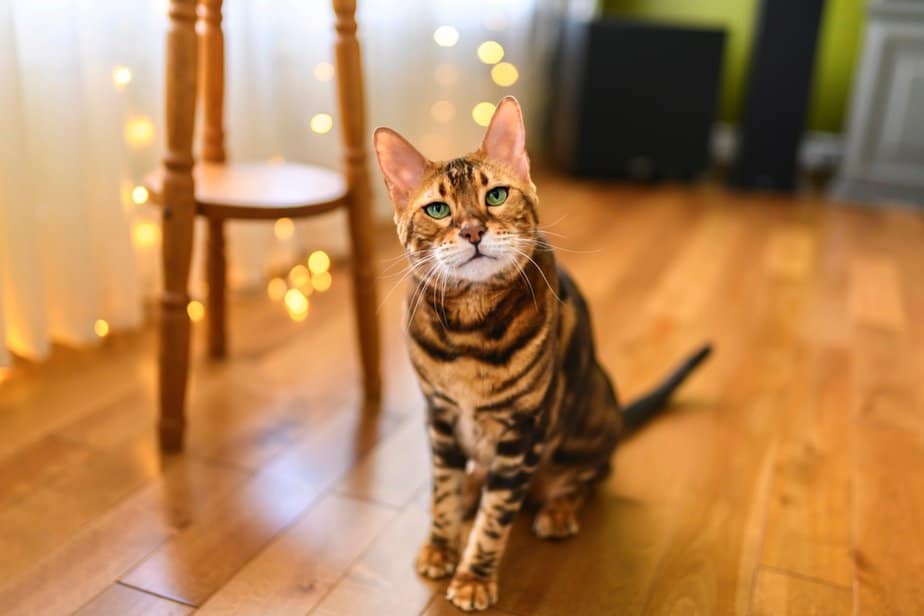
As you might have guessed by now, nutritional yeast is full of health benefits. This food lives up to its name for sure!
One of the most nutritious aspects of yeast is protein. Containing all of the nine essential amino acids, this treat is a beneficial addition to your cat’s diet.
Protein is a crucial nutrient for carnivores that helps them grow and develop. It’s one of the primary sources of energy and serves as an immune booster.
Besides being filled with protein, nutritional yeast has an array of other health advantages for felines. So, not only can cats eat nutritional yeast, but they should.
It has an abundance of B vitamins including thiamine, niacin, riboflavin, as well as folate. These can be found in larger quantities in fortified (processed) yeast, as the processed yeast has added certain nutrients while the unfortified type doesn’t.
Vitamin B is essential for cats because it helps break down carbohydrates. It also aids in regulating and transporting nutrients throughout the body.
Your pet could potentially benefit a lot from this deactivated yeast if you add some to her regular cat food. It could be dry food like kibbles or wet food because it mixes well with anything.
One of the major pros of feeding your pet this deactivated yeast is the beta-glucan. It’s known to help reduce blood cholesterol levels. Together with other antioxidants, beta-glucan also has antibacterial and antifungal properties, aiding in boosting immunity and guarding against infections.
How is yeast good for cats?
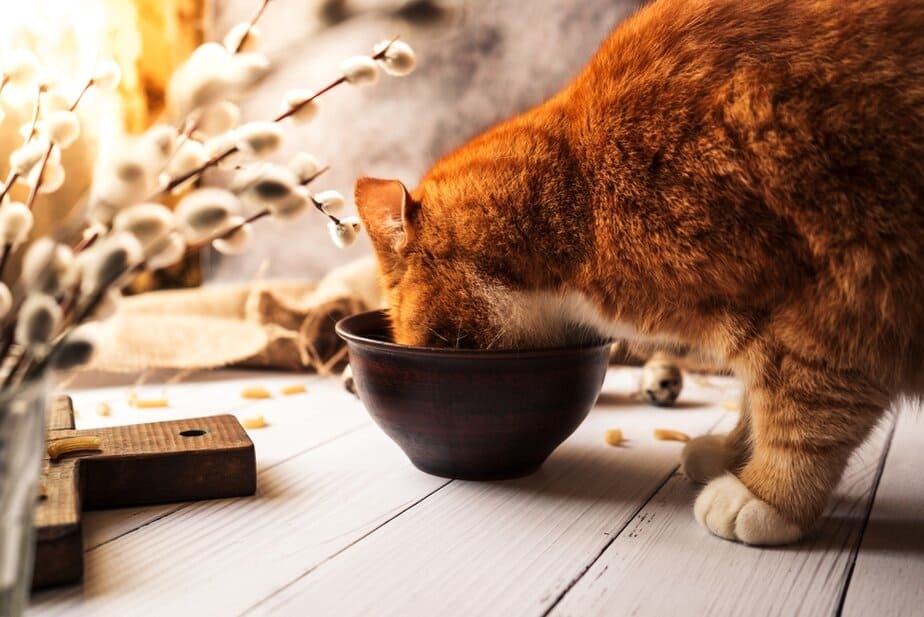
Besides the various health advantages, nutritional yeast doesn’t commonly provoke problems. Some other foods like chicken and grains are known to be the cause of allergic reactions in felines.
However, nooch is completely gluten-free – a good thing, as cats are prone to developing a gluten allergy. Together with tapioca, this deactivated yeast is also one of the few vegan foods that can benefit your pet.
Another reason cats can safely eat nutritional yeast is that it’s considered dairy-free. Surprisingly, cats are lactose intolerant, as they can’t break down the sugar found in dairy.
You may have experienced an unpleasant series of events when giving your furball some milk. Sugar, known as lactose, is the reason for your pet’s loose stools and bloating. This can be followed by gassiness, abdominal pain, as well as vomiting.
With nooch, however, you won’t have any of these problems.
How often can cats eat nutritional yeast?
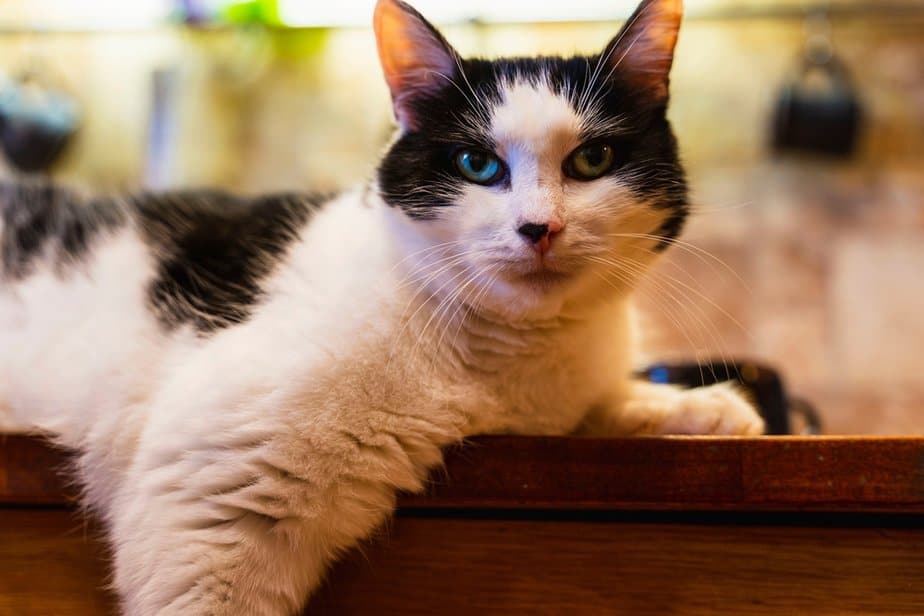
There is such a thing as too much of a good thing, right? It’s not recommended to overdo any type of human food. And too much nutritional yeast can actually harm your feline.
I know pet food can become boring and this is a hard task to tackle when it comes to fussy eaters. However, make sure you don’t get ahead of yourself because of all the health advantages nooch brings.
This type of yeast has high amounts of phosphorus. While it’s essential for bone and tooth strength, excessive quantities can turn to proverbially bite your cat in the face.
Well, it’s more of a kidney problem, to be exact. An overabundance of foods high in phosphorus can accelerate the onset of kidney disease in cats.
Besides, you don’t want to feed your carnivorous pet foods that aren’t meat-based. Meat is their primary choice of food because it provides them with all essential nutrients.
And even with all of the health supplements, yeast fails to replace meat. Because it’s vegan, it means it’s classified as a plant-based food. Therefore, the nutritional potential found in it could possibly go to waste in a carnivore’s system, which is designed to digest animal-derived foods.
Make sure you maintain a balanced and healthy diet that’s fit for your feline friend’s digestive system. A sprinkle of nutritional yeast every now and then can bring many health benefits, but remember the nature of your pet’s diet.
To sum up
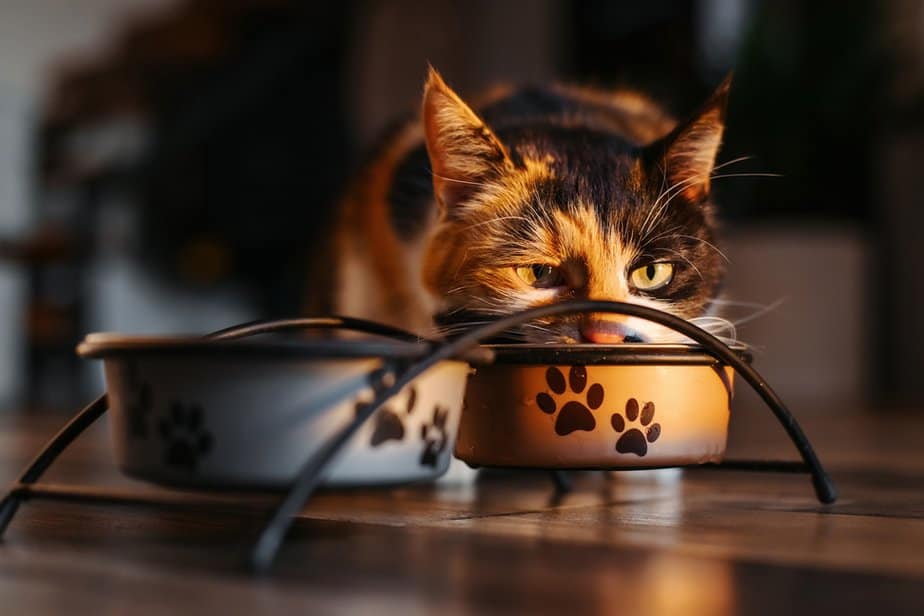
If you were burdened by the question of can cats eat nutritional yeast, I hope your uncertainty is now all cleared up. Diet is a tricky aspect of the cat world and it doesn’t help that our pets can be finicky eaters.
The good news is that this deactivated yeast is a perfect addition to her meals. You can sprinkle it over her food and it can actually encourage her to finish her lunch.
Just remember that it differs from brewer’s yeast and the one used in making dough and bread. Nooch has a number of health benefits for felines and is completely safe to incorporate into their diets, in moderation.
It contains generous amounts of B vitamins, various minerals, as well as antioxidants. More importantly, it’s packed with protein and essential amino acids that aid in your cat’s health.
Still, you shouldn’t overdo it. High amounts of phosphorus found in nutritional yeast can negatively impact your feline’s health, hastening the development of kidney disease.
Besides, nutritional yeast is plant-based, so it’s possible that your furry friend is unable to digest it properly, and therefore, she may lose the valuable nutrition it offers.
